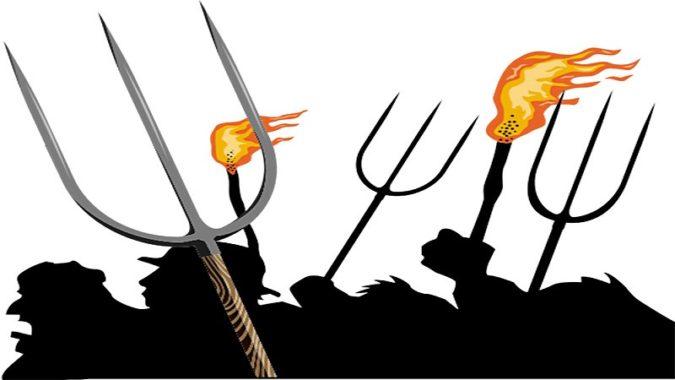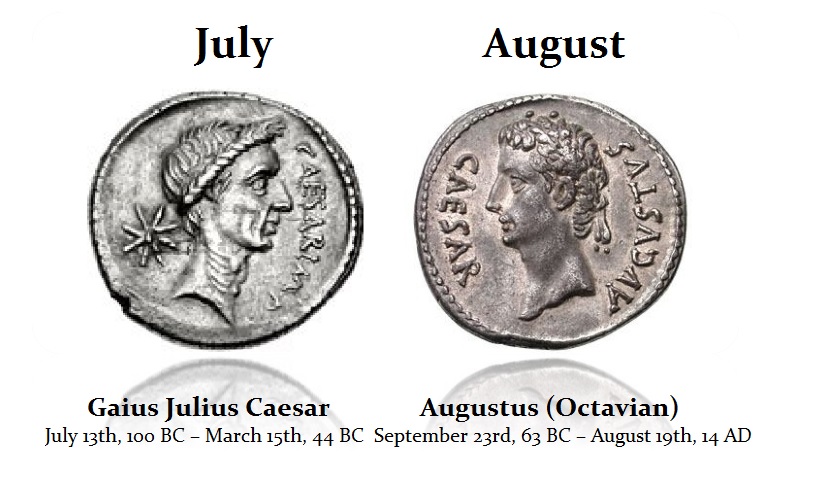Tag: Rome
Decline of Empire: Parallels Between the U.S. and Rome, Part I
Guest Post by Doug Casey

As some of you know, I’m an aficionado of ancient history. I thought it might be worthwhile to discuss what happened to Rome and based on that, what’s likely to happen to the U.S. Spoiler alert: There are some similarities between the U.S. and Rome.
But before continuing, please seat yourself comfortably. This article will necessarily cover exactly those things you’re never supposed to talk about—religion and politics—and do what you’re never supposed to do, namely, bad-mouth the military.
There are good reasons for looking to Rome rather than any other civilization when trying to see where the U.S. is headed. Everyone knows Rome declined, but few people understand why. And, I think, even fewer realize that the U.S. is now well along the same path for pretty much the same reasons, which I’ll explore shortly. Continue reading “Decline of Empire: Parallels Between the U.S. and Rome, Part I”
Antifa Ruthlessly Attacks Families At Christian Prayer Event
Athens In Winter
Guest Post by The Zman
It has been popular on the Right for a long time to compare modern America to the Roman Empire. Often the point of the comparison is to support the claim that America is an empire, rather than a republic. Alternatively, the point is to warn of an imminent collapse, just like what happened to Rome. The so-called conservatives, of course, reject the idea, because the Left requires it, but most Americans still cling to the idea that the country is some sort of democracy.
The Gladiator
Guest Post by The Zman
In the movie Gladiator, Russell Crowe plays Maximus Decimus Meridius, a Roman general who is betrayed by the demented son of the Emperor. His downfall first leads to him in a slave camp and then as a gladiator in the provinces. His prowess as a fighter leads him to Rome to fight before the emperor, where he is revealed to be the famous general, in Rome to seek his revenge. The movie is a reworked version of the Count of Monte Cristo, but set in imperial Rome.
Following in Rome’s Footsteps: Moral Decay, Rising Inequality
Authored by Charles Hugh Smith via OfTwoMinds blog,
Here is the moral decay of America’s ruling elites boiled down to a single word.
There are many reasons why Imperial Rome declined, but two primary causes that get relatively little attention are moral decay and soaring wealth inequality. The two are of course intimately connected: once the morals of the ruling Elites degrade, what’s mine is mine and what’s yours is mine, too.
Continue reading “Following in Rome’s Footsteps: Moral Decay, Rising Inequality”
Washington Is “The New Rome”
Authored by James Rickards via The Daily Reckoning,
I just got back from a trip to Washington, or what I call “New Rome” because Washington’s relationship to the rest of America is the same as Rome’s relations with the agrarian and plebeian citizens of its vast domains in late antiquity.
Washington is a parasite that sucks the rest of the country dry. The counties surrounding Washington, D.C., have the highest per capita income of any metropolitan area in the country including New York, Hollywood and Silicon Valley. The unemployment rate is also the lowest of any large region in the country.
At least New York, Silicon Valley and Hollywood all produce something we need or enjoy. Washington produces red tape, taxes and new ways to handicap innovation on a daily basis.
Bill Blain: There Is A “Last Days Of Rome” Feel To The News These Days…
By Bill Blain of Mint Partners
Blain’s Morning Porridge – August 22nd 2017
“”Forty-two,” said Deep Thought, with infinite majesty and calm.… ”
I’m wondering if I’ve stumbled into a parallel universe after coming back to the office yesterday. Its too damn quiet out-there! Everybody else is apparently still on holiday. It’s scary. Every headline is about thin markets or how markets have shrugged off last week’s sell off.. (what about next week’s?) There doesn’t seem to be anyone actually at their desks… That’ll change…
This week? Since no one is out there.. I can say what I like.. It’s no wonder news flow noise is being magnified out of proportion..
It used to be the summer was the right time for big Jackson Hole style gatherings – safe on the basis holiday markets weren’t paying much attention. Central bankers/economists/investors and other influencers could gab and pontificate without upsetting anyone. But today.. well maybe there are just too many journalists, bloggers and other market parasites just desperately keen to make sure folk are acting upon their supremely important insights into what Stephen Mnuchin’s wife was wearing during his visit to Fort Knox and what it means for global asset prices.
There is a “last days of Rome” feel to the news these days…
Continue reading “Bill Blain: There Is A “Last Days Of Rome” Feel To The News These Days…”
THIS DAY IN HISTORY – Rome founded – 753 BC
According to tradition, on April 21, 753 B.C., Romulus and his twin brother, Remus, found Rome on the site where they were suckled by a she-wolf as orphaned infants. Actually, the Romulus and Remus myth originated sometime in the fourth century B.C., and the exact date of Rome’s founding was set by the Roman scholar Marcus Terentius Varro in the first century B.C.
Continue reading “THIS DAY IN HISTORY – Rome founded – 753 BC”
VERY INTERESTING
The Political Class Murders Itself
Guest Post by The Zman
The point at which the Roman Republic moved from republic to empire is generally placed at the point when the Senate granted Octavian almost unlimited power and he adopted the title Augustus. Some historians argue it was when Caesar crossed the Rubicon or when he defeated Anthony at Actium. The implication is that once the transition was started, there was no turning back. The more useful analysis is to think of it as a process, with roots in the Republic, that evolved to the point where dictatorship was inevitable.
QUOTE OF THE DAY
“Seneca had made the bargain that many good men have made when agreeing to aid bad regimes. On the one hand, their presence strengthens the regime and helps it endure. But their moral influence may also improve the regime’s behavior or save the lives of its enemies, even if it cost them their souls…The Rome he had been trained to serve, the Rome of Augustus and Germanicus, was gone. In its place stood Neropolis, ruled by a megalomaniac brat.”
James Romm, Seneca At the Court of Nero
Of Bread And Circuses
Guest Post by Ben Moreell , January 1, 1956
Admiral Moreell is chairman of the board, Jones & Laughlin Steel Corporation.
A twentieth-century repetition of the mistakes of ancient Rome would be inexcusable.Rome was eight and a half centuries old when the poet, Juvenal, penned his famous tirade against his degenerate countrymen. About 100 A.D. he wrote: “Now that no one buys our votes, the public has long since cast off its cares; the people that once bestowed commands, consulships, legions and all else, now meddles no more and longs eagerly for just two things, bread and circuses.” (Carcopino, Daily Life in Roman Times [New Haven, Yale University Press, 1940], p. 202.) Forty years later, the Roman historian, Fronto, echoed the charge in more prosaic language: “The Roman people is absorbed by two things above all others, its food supplies and its shows.” (Ibid.)
Here was a once-proud people, whose government had been their servant, who had finally succumbed to the blandishments of clever political adventurers. They had gradually relinquished their sovereignty to government administrators to whom they had granted absolute powers, in return for food and entertainment. And the surprising thing about this insidious progression is that, at the time, few realized that they were witnessing the slow destruction of a people by a corruption that would eventually transmute a nation of self-reliant, courageous, sovereign individuals into a mob, dependent upon their government for the means of sustaining life.
No Matter What Century, It’s Always Politics
Guest Post by Martin Armstrong
If you look at the calendar, the months that have 31 days are January, March, May, July, August, October, and December. The only two months with 31 days back-to-back are July and August. Why? July was named for Julius Caesar. Augustus, meaning “father of the nation,” died on August 19, 14 AD, and was probably poisoned by his wife. So they named August after him before his death. But of course, August had 30 days and that would be slighting Augustus relative to Julius who had 31 days. So the solution was obvious. They took the extra day from February which was only named for a feast day known as the Februarius or Februa, the feast of purification, and renamed the month with 31 days equal to July.
January was named for the god Janus and March was named for Mars. You certainly didn’t want to make them angry. May was named Maius taken from the Greek Maia, or the goddess of spring. June could not be touched since that was named after the goddess Juno, the queen of the gods. July’s original name was quintilis or the fifth month in the early Roman calendar, so renaming that for Julius Caesar did not offend anyone. August was originally named sextilis or the sixth month in the early Roman calendar. September was the seventh month in the early Roman calendar and October was the eighth. November was named the ninth month and December (decimal) the tenth month.
Therefore, February was an easy month to take days from since it was named after a feast and nobody had to offend the gods.
WHILE ROME BURNS
Recipe For Collapse: Rising Military & Social Welfare Spending
Submitted by Charles Hugh-Smith of OfTwoMinds blog,
Leaders faced with unrest, rising demands and dwindling coffers always debauch their currency as the politically expedient “solution.”
Whatever you think of former Fed chair Alan Greenspan, he is one of the few public voices identifying runaway entitlement costs as a structural threat to the economy and nation. We can summarize Greenspan’s comments very succinctly: there is no free lunch. The more money that is siphoned off for entitlements, the less there is for investment needed to maintain productivity gains that are the foundation of future income generation: Greenspan: Worried About Inflation, Says “Entitlements Crowding Out Investment, Productivity is Dead” (via Mish)
Many people look to the rising costs of the U.S. military as the structural problem, and they have a point: there is no upper limit on military spending, and the demands (by the civilian leadership of the nation) on the services and the Pentagon’s demands for new weaponry are constantly pushing budgets higher.
But the truth is entitlement spending now dwarfs military spending: entitlements are more than $1.75 trillion, half of all Federal spending, while the Pentagon, VA, etc. costs around $700 billion annually.
We have a model for what happens when military and social welfare spending exceed the state’s resources to pay the rising costs: the state/empire collapses. The Western Roman Empire offers an excellent example of this dynamic.
Continue reading “Recipe For Collapse: Rising Military & Social Welfare Spending”













